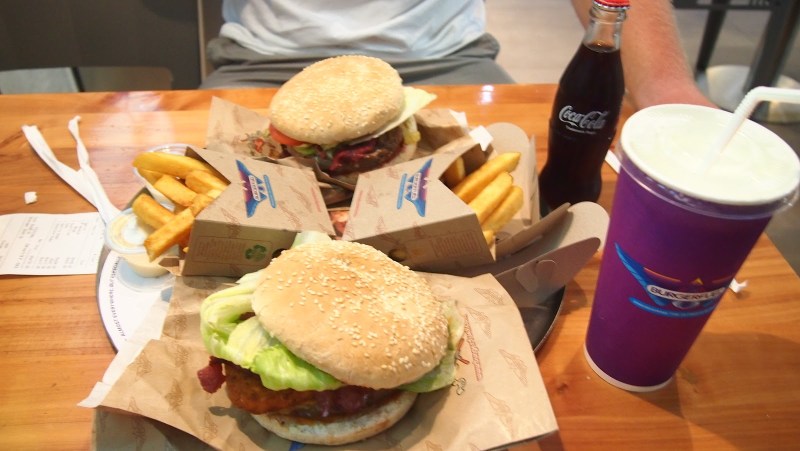When I was 7 years old, we went for a lot of family drives in our white Toyota civic. Occasionally, my dad would swing into the local McDonald’s outside WestMall. I’d order chicken nuggets with barbecue sauce, fries and a chocolate milkshake. When we got home, I dumped the nuggets in my pink bowl and we’d sit around the table munching on our meals. When McDonald’s left Trinidad in 2003, I was disappointed. Now they’re back, and I wish they’d stayed away.
In Trinidad and Tobago where I grew up, fast food is no small industry. There’s a Kentucky Fried Chicken around every corner, scattered among local fast food chains like Royal Castle. Companies like Church’s Chicken are so well-established that I thought they were local until I Googled it a moment ago. Wendy’s, Denny’s and Burger King have all moved in and made themselves at home among our roti shops, Chinese restaurants and street food stands.
I’m not surprised that the fast food industry is booming. Trinidadians love KFC. We love our local cuisine, too — our macaroni pie, buss up shut, oil down, crab and dumplings, callaloo — but KFC still holds a special place in our hearts and stomachs. Is it the taste? The cost? The convenience? It’s not one thing, but a combination of all three. Companies like KFC are introducing a westernized diet that’s changing our foodscape for the worse.
McDonald’s and KFC are everywhere, infecting countries with the mark of the Western diet: calorie-dense, processed foods high in sugar, fat and sodium. Consider a KFC deal like Trinidad’s $25 TTD (less than $4 USD) “Supa Meal” — fried chicken, French fries and a soft drink — and you have a pretty good estimate of a Westernized diet.
These oily, fatty, salty meals are becoming the easy, convenient, accessible option. This is not okay.
Not only are processed foods replacing fruit and vegetable intake, but local markets and food outlets cannot always compete with the convenience and affordability of the Western diet. Moreover, in the Caribbean, rates of obesity-related health complications like diabetes and hypertension are growing. Unsurprisingly, researchers report that changing food consumption patterns are a major contributor to this trend. My mom knew someone who ate KFC every day and died from heart disease in his 40s.
It’s time for multinational fast food chains to recognize how their presence negatively impacts health and worsen our diets. Companies like KFC need to address this issue by either stepping down and leaving our countries or stepping up and improving their menus.
Multinational corporations must take responsibility for the impact of their companies on the populations they serve. Though they’re creating jobs, is it at the expense of the health or culture of a population? Perhaps their menus can be adjusted to include local cuisine, reflect better health outcomes and support local markets.
Kudos to the franchises that are already doing this, like the McDonald’s in Saudi Arabia that offers fish tempura and tartar dipping sauce or the rice bowls and aloo wraps available at some Indian branches. And shout out to the Trinidadian restaurants that up their servings of fish-based dishes during Lent when some people abstain from meat.
These changes must, however, be implemented in a non-threatening way. International franchises must make themselves competitive with local markets, not drown them out. For consumers looking for a quick, tasty, affordable meal, KFC cannot be the only option.
But what can we do as consumers? If it’s within our means, we can think more mindfully about where our food is coming from. What are we supporting if we buy a KFC family bucket or McDonald’s Happy Meal? How is this impacting our health? Perhaps there is a similarly priced option that is local, or one that we can easily prepare at home. If you’re thinking about heading out to KFC, chances are there’s a local option nearby.
I recognize that local foods aren’t always healthier. In Trinidad, we eat rotis loaded with carbs and so greasy that they stain their brown paper bags, but I’d rather support unhealthy local food than unhealthy food from an international food chain that doesn’t need my dollar.
Contact Astrid Casimire at acasimire ‘at’ stanford.edu.
